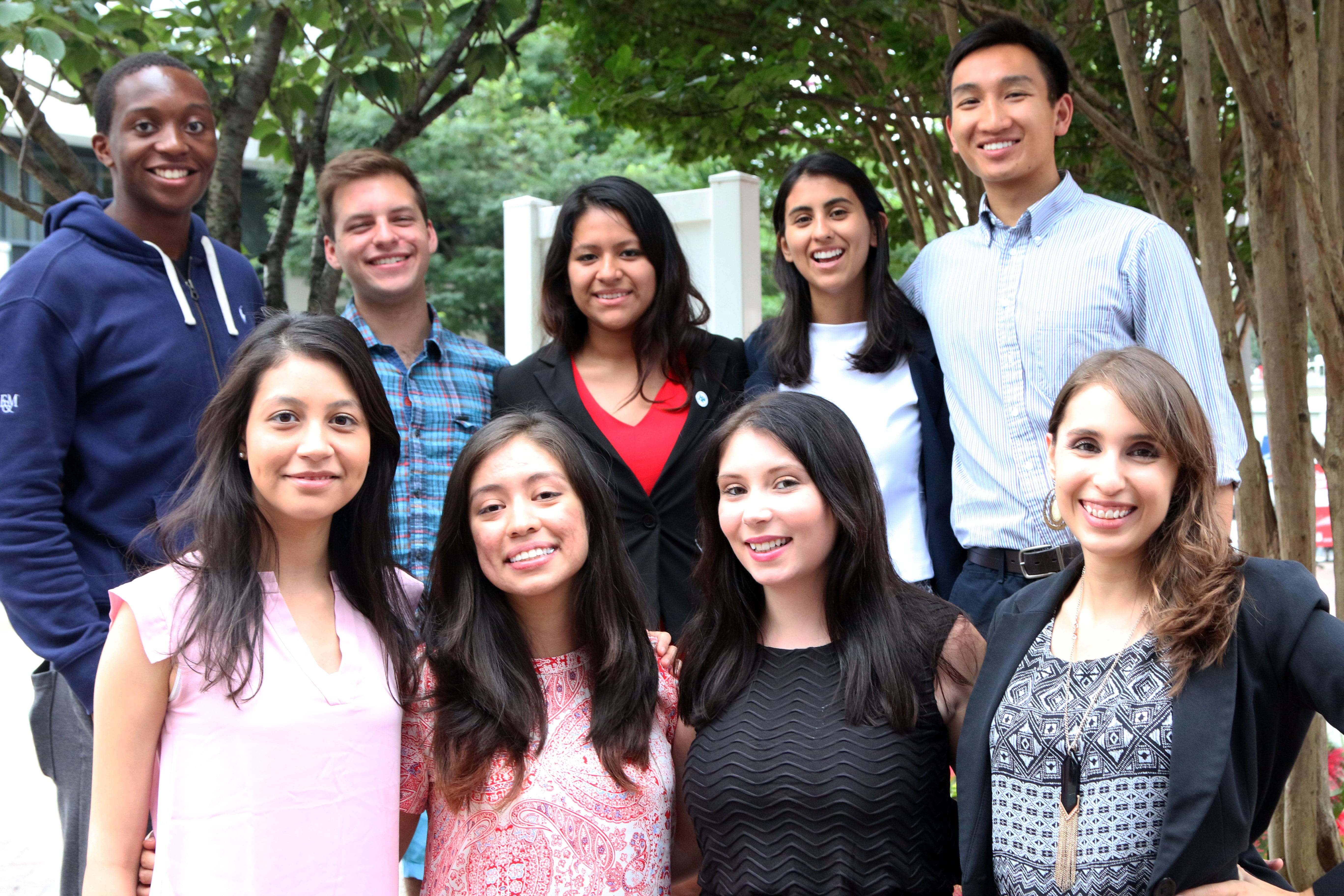Five Years of the Karel Fellowship
By Andy Burness, June 13, 2016

Washington is about to be graced with the fifth class of Karel Fellows – good news for the agenda of social change that is so critical at a time when there is enormous need for new solutions to some of the most challenging problems facing our society. But, also good news for the nonprofits – nine this year! – that will host them. And, good news for the fellows themselves, who will bring back learnings to the seven colleges and universities to which they will return in the Fall.
It’s worth pausing five years later to reflect on the vision Frank Karel had for this fellowship and the “state of the fellowship” itself, certainly on track to be the ambitious and successful venture that we envisioned at the outset. I am looking at a photo of him in his prime as I write this blog. He was a pioneer, not the first to be committed to social justice in the public interest, but among the first to articulate that communications could and must be a driver of the justice and reforms we seek – or they simply won’t happen.
As he made very clear, it’s one thing to house a homeless person or offer food to a malnourished or hungry person; it’s quite another to spread what is learned from research or innovation at the system level to actually eradicate homelessness and feed communities or even nations. That’s why his work took him from communities to regions to the nation to the world. Big ideas grounded in evidence can change the world. But it’s the marriage of the content experts with the communicators that turns ideas into better lives for all of us, but most urgently, for the marginalized among us.
So, now following Frank’s lead, public interest communicators are all in on the importance of the right message, the right channels to deliver that message, and the right and most effective messengers as the change-agents who drive reform. And, it’s in this latter area – the messengers – where we are falling short. Our field is too white and too economically privileged to own the space as messengers for change that encompasses all of America. We are an increasingly diverse nation, and for the greater world in which we live, defined by even greater diversity, we should seek new, and in some circles, more credible messengers for greater equality, better health, education, economic fairness, and generally, a safer world with a cleaner environment and less violence.
We need to diversify our field of public interest communications to help make this happen, and the Karel Fellowship is the most exciting national initiative to do this. In our first five years, thanks to the Robert Wood Johnson Foundation and W.K. Kellogg Foundation, among others, we have placed 37 fellows from 15 different colleges and universities. These schools are based from Florida to Massachusetts, from Arizona to Minnesota, and their students have partnered with a total of 18 unique organizations. These non-profits are coming at social change from very different places, but with common values and a common passion for a more just society. Some, like Trust for America’s Health, Aeras and the Campaign for Tobacco-Free Kids, are about better health. Some, like Latino Economic Development Center, Casa de Maryland and Mary’s Center, work with immigrant populations. Some, like Special Olympics and Wider Opportunities for Women, work with specific populations to celebrate and expand their opportunity.
And, this year is our best ever. We had 40 applications from 23 colleges and universities representing 15 states. We are poised for a tipping point where it will be even more challenging to decide who we can invite into this fellowship, because demand is growing as college students become aware of the field of public interest communications and the opportunity that this fellowship provides to become immersed in it.
This campaign season has given voice to engaged, committed, passionate young people who want to speak out about injustice and the need for social change. It’s in all of our interests to educate them about the tools for effective advocacy, so that they become more skilled at the “how” of change. Our young advocates can learn so much from exposure to public interest communications, experiencing an introduction to the “science” of policy reform so that rallying cries extend beyond rhetoric (the “what”) to the much needed strategies for making change actually happen (“the how”).
Frank Karel was a father, a brother and a mentor in my life. He would be so proud of what these fellows have accomplished over the first five years of this fellowship in his name and so excited about this particular class of new fellows.
